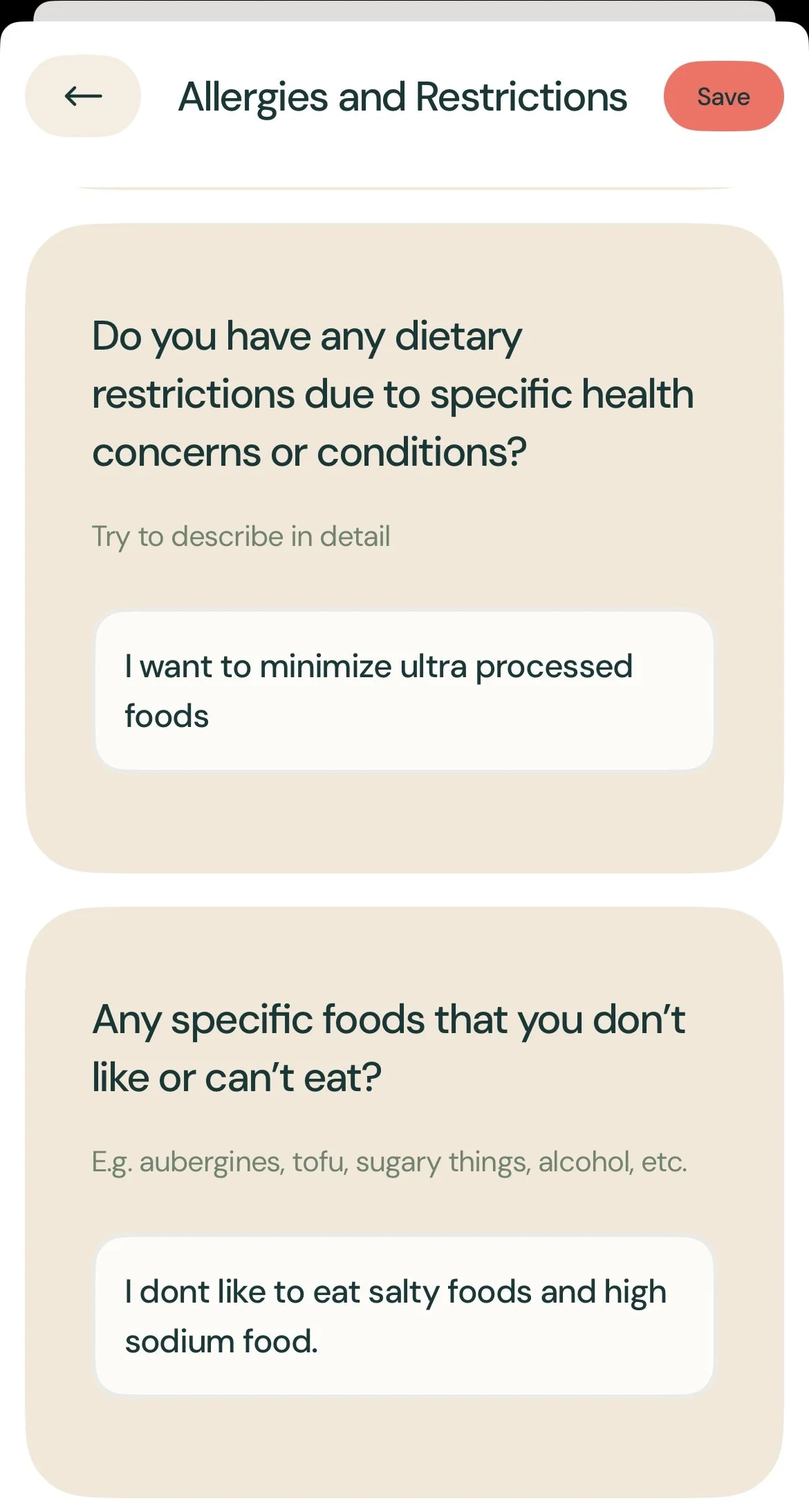What Is Food Noise and How Does It Impact Us?
First off, here are the new app updates:
🏷️ Barcode Scanner: The camera now has a barcode option! Just point to a barcode and it will automatically scan it. Then you can quickly edit the servings and amount and log it. The barcode function works best for products coming from the US.
📱 Camera bug fix: Few users had the problem where the camera was behaving weirdly. This should be fixed now.
⭐ Favorites automatically set to meal time: Whenever you use the Favorites function to log a recipe or a food you eat often, it will automatically set the meal time depending on time of day.
Now onto our main topic today: food noise 🎧
What Is Food Noise and How Does It Impact Us?
Food noise, a term describing the constant mental chatter and thoughts about food, is a concept gaining attention in the science of eating behaviors. It’s the subtle but persistent focus on food choices, cravings, and even fears about eating that can pop up throughout the day. For many, food noise can become distracting or even overwhelming, often influencing decisions and behaviors in ways we don’t consciously notice.
Researchers believe that food noise may stem from the modern food environment, where endless food options, advertising, and cultural messaging around diet create a "noisy" mental space. This constant bombardment can lead to increased cravings, heightened stress around food, and even cycles of overeating or restrictive behaviors. Food noise can make it harder to recognize true hunger and fullness cues, leading to unintentional habits that might not align with one’s health goals.
When Does Food Noise Happen?
Food noise often pops up in everyday situations. For example, you might pass by a bakery and immediately think about dessert, even if you’re not hungry. Or, you’re watching a show, and a character is eating pizza, sparking a sudden craving for the same thing. Food noise can also arise in moments of stress or boredom, like during work breaks or study sessions, when thoughts of snacking may replace actual hunger. These subtle cues often lead us to eat out of habit rather than hunger, making it difficult to stick to our health goals.
Understanding and managing food noise can be beneficial for mental and physical health. Mindfulness practices, balanced nutrition, and self-compassion around food choices are all strategies that can help quiet this mental noise. By being aware of food noise, we can take steps to tune into what our bodies truly need, promoting a healthier, more intuitive approach to eating.
Ultimately, taking control of food noise isn’t about ignoring food altogether but rather learning to focus on how it can nourish us. Reducing this mental clutter around eating can lead to healthier, more balanced relationships with food, where we enjoy our meals and feel satisfied without constant preoccupation.
How Can Welling Help With Food Noise?
1. Develop Your Mindfulness Skills With Welling
Build awareness of your eating habits by logging your meals. Welling can help you notice patterns, such as when stress or intrusive thoughts lead to unhealthy choices. By identifying triggers, you can learn to pause, reflect, and make more mindful decisions. Additionally, the conversational experience can reinforce progress, reducing anxiety around food.
2. Reduce Your Intake of Ultra-Processed Foods (UPFs)
In the Allergies and Restrictions settings (see image above), tell Welling that you want to cut down on Ultra Processed Foods. Then log your food with Welling to spot the UPFs in your diet. Welling will provide alternatives or healthier swaps.
3. Eat Regular, Balanced Meals
It’s important to eat at consistent intervals, ensuring stable blood sugar levels. By logging your meals with Welling, you can ensure they are well-balanced, incorporating adequate protein, fiber, and healthy fats to sustain energy throughout the day and prevent spikes or dips in hunger.
4. Eat a Well-Balanced Diet
Track your nutrient intake to ensure you’re meeting your body’s needs. Advanced calorie trackers like Welling analyze your macronutrients and give feedback on your food intake to help you improve your diet.

